Inside Israel: African Refugees Find Little Exodus Spirit
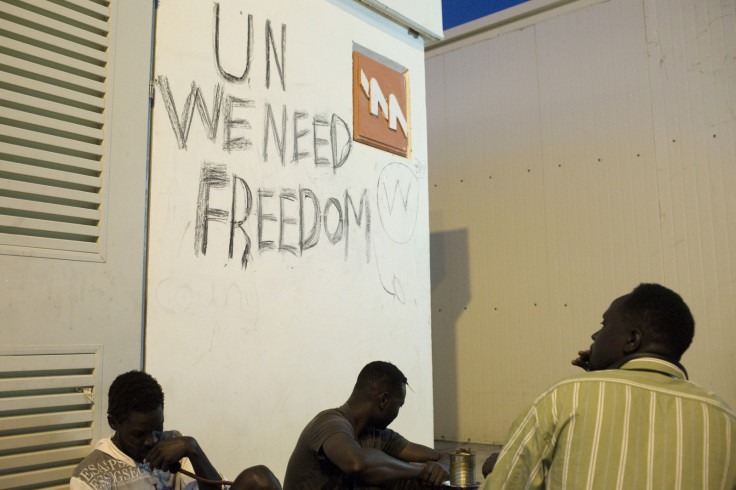
It was Yom Kippur, the holiest day in the Jewish calendar, and the streets of Tel Aviv were teeming with bicycles. The sounds of shrieking children filled the breezeless air as they raced wildly up down and across the car-less boulevards of Israel's biggest city.
Heading south down Allenby street in the dry early afternoon heat, past the now-empty bars and clubs that attract so many young people to this city, Tel Aviv becomes increasingly culturally diverse. The southern part of the city is home to its ethnic minorities, mostly migrants of African and Asian origin.
Some of these men and women came here to seek asylum, while others arrived in search of employment. Many now work in the low-paid jobs that Israelis shun but are essential to the daily functioning of the city.
Fleeing Dictatorship
I've come to the neighbourhood to meet with Dawit, a young Eritrean man who tried to claim political asylum in Israel in 2009. We meet on the deserted street corner before heading inside to the office of the non-governmental organisation where he works as a translator. Inside, he hands me a glass of water from the cooler and begins to recount his life and flight from Eritrea.
Dawit's early teenage years growing up in Eritrea had been unremarkable. After graduating from high school, he completed the mandatory year of military service. From the 10,000 Eritreans who finished the year, Dawit was one of 2,000 to 3,000 that were given the chance to move on to college.
The college system in Eritrea is run by army officials and as such it is not recognised by international universities. "Freedom of movement is very restricted. The government uses these colleges to control the young Eritreans," said Dawit.
"I studied marine microbiology for two years. After this the government took people with good marks from all the colleges to a top-level 'political improvement' course. I was one of the few people selected to go to this course."
"They can't force you to go on this course but you can't refuse. If you refuse, you will be detained."
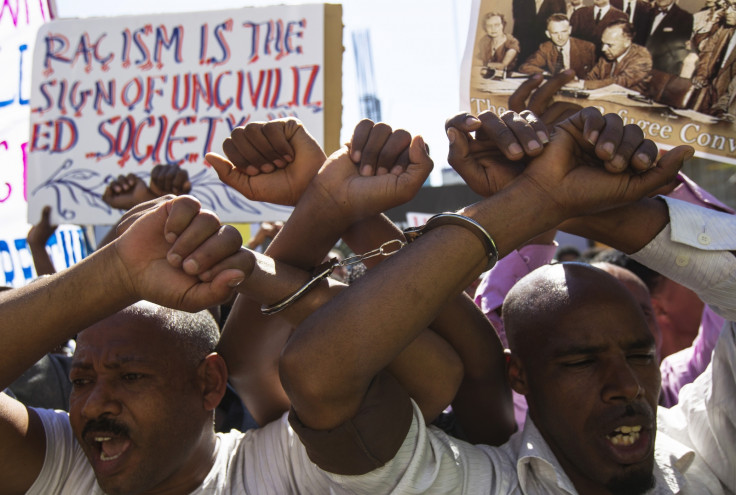
Dawit attended the course dutifully and spent a few months learning improving his politics in line with the government's thinking.
"The higher officials from the government come to this course and give lectures. They tell you that Eritrea is democratic. 'It's not like the West. We have our own democracy.' They try and make you loyal to the government," he said.
The course lecturers told the students they were free to ask whatever questions they wanted to and Dawit took the statement literally.
"So I asked, if we are a democratic country and people are suddenly disappearing, nobody knows where they are. They are detained and their family can't visit them and they can't have lawyers, so how does this make us democratic?"
Dawit was visited by the security forces from the course, who issued a stark warning to the bright young student.
So I asked, if we are a democratic country and people are suddenly disappearing, nobody knows where they are. They are detained and their family can't visit them and they can't have lawyers, so how does this make us democratic?
"They told me: 'When you continue asking such questions, you will put yourself in danger,'" he said, his tone lowering.
Despite the warning, Dawit completed the course and was sent back to college to await further instruction from the political improvement leaders.
"First of all, I did not want to be loyal to the government dictator. Secondly, I was afraid that because I asked that question, maybe the government would do something to me. I decided to leave Eritrea in March 2009," he said.
After spending some time in Ethiopia and then Sudan, Dawit wanted to reach Europe by boat via Libya. He spent five months in that country, seeking a way to cross the Mediterranean to Italy. However, the political climate in Italy during 2009 was particularly hostile towards incoming refugees as many were deported to the North African state.
With his options running out, Dawit decided to cross Egypt's Sinai desert to Israel, reaching the country in October 2009.
Refugee Rights
Upon arrival he was incarcerated in an Israeli prison, where Dawit said he was told to sign a paper saying he had come to Israel in search of work and was not seeking asylum. He refused to lie on the form, he said, and was released after three months with a letter written in Hebrew, which he didn't understand.
After taking a string of jobs in Tel Aviv, he's since found steady work as a translator with a local NGO that assists migrants in Israel.
"It's easy for employers to violate asylum seekers rights," he said, offering me a glass of water. "We're sitting in the otherwise empty office where Dawit works. The walls are adorned with bright posters, featuring a mixture of Hebrew and English headlines that detail migrant workers' rights and options in concise bullet points.
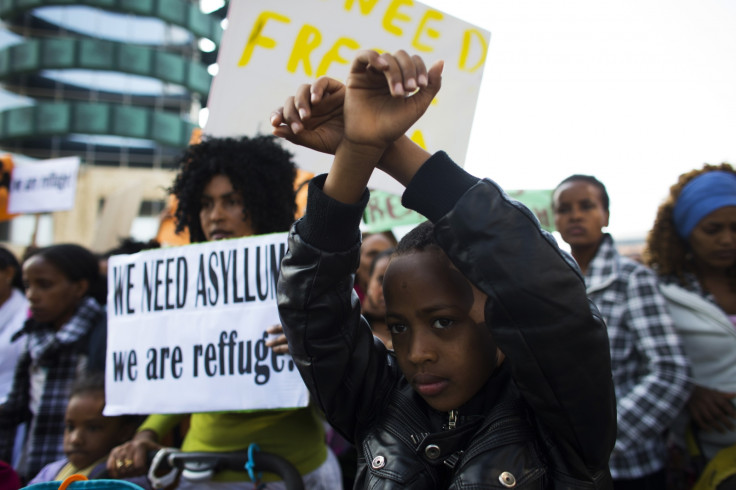
"Around 70% of us are working but a lot of us have our rights violated at work," he adds, matter-of-factly. "The permit that we have is temporary... we're allowed to work but we don't have a work permit."
Reports of unscrupulous employers withholding wages and benefits are commonplace, Dawit told me, as asylum seekers are not bound to any contract with the employer.
A handful of local NGOs are dedicated to assisting the thousands who work without the legal protection of a contract. Dawit said his NGO deals with some 80 asylum seekers each week, around half of whom are new.
"Some of them work with the same people for years and when they are fired, they come to us and say they have not received any social benefits. Sometimes they don't give them salary slips. Even if they give them, they don't read Hebrew and they write what they want," he said.
Some of them work with the same people for years and when they are fired, they come to us and say they have not received any social benefits. Sometimes they don't give them salary slips. Even if they give them, they don't read Hebrew and they write what they want
The same thing happened to Dawit when he sought to claim asylum in 2009, he told me. The young refugee was adamant he was fleeing persecution in his country but said he was then misled into signing a Hebrew statement that actually confirmed he was an economic migrant.
'Make Their Lives Miserable'
There are currently around 48,000 African migrants in Israel, the vast majority being Sudanese and Eritreans. Both African states are controlled by repressive governments with a habit of making opponents and dissenters "disappear".
Israel's own government has failed to find a way to treat those fleeing these countries once they arrive in Israel. The numbers show the idea of granting asylum to refugees seems an anathema to the government. By the end of June 2014, only two Eritreans had been recognised as refugees, while no Sudanese had their asylum requests granted.
The fate of Eritrean refugees in other receiving countries, such as Italy, Norway, Switzerland and the United Kingdom is dramatically different. Of those seeking asylum, 83% were granted some form of protection, according to a Human Rights Watch report published in September.
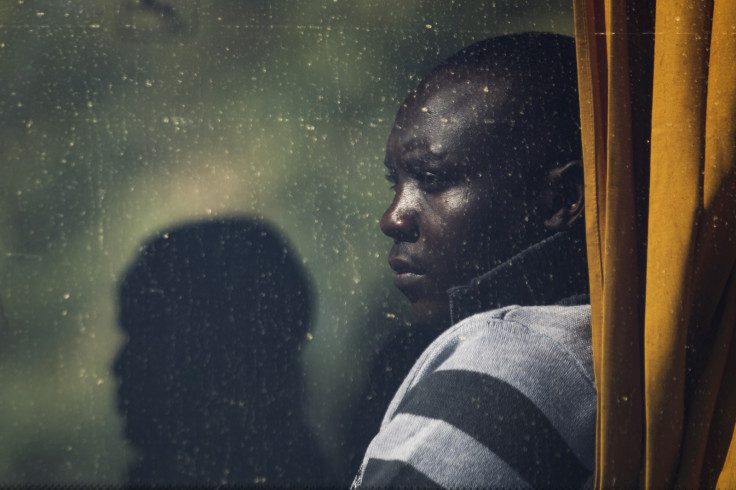
Instead, in the words of the Interior Minister Gideon Sa'ar, the Israeli government has pursued the policy of "encouraging the illegals to leave".
Moreover, the former interior minister Eli Yishai has said publicly that if Israel could not deport the refugees to their countries of origin, it should "lock them up and make their lives miserable". Africans have been consistently labelled by government officials as "infiltrators" rather than asylum seekers or refugees.
The strong rhetoric has been backed up by forceful action. In late 2013, the government opened the Holot "Residency Centre" in Israel's southern Negev desert. It has just been ordered to close within 90 days by Israel's Supreme Court.
Protocol at the centre violated the dignity and freedom of the asylum seekers, the court ruled.
The facility has been home to around 2,200 asylum seekers from Eritrea and Sudan, who have been required to report at Holot three times a day and to be in the centre at night.
The centre's location in the desert, far from the closest town, meant its inhabitants "will choose, insofar as it's possible to call this a 'choice,' to remain within the centre's gates all day long", the judge said.
"Let us not allow the name 'open facility' to lead us astray," the court said. In practice, Holot is "similar in essence to a closed facility", which "violated part of the minimum dignified life to which every person is entitled", said the judge.
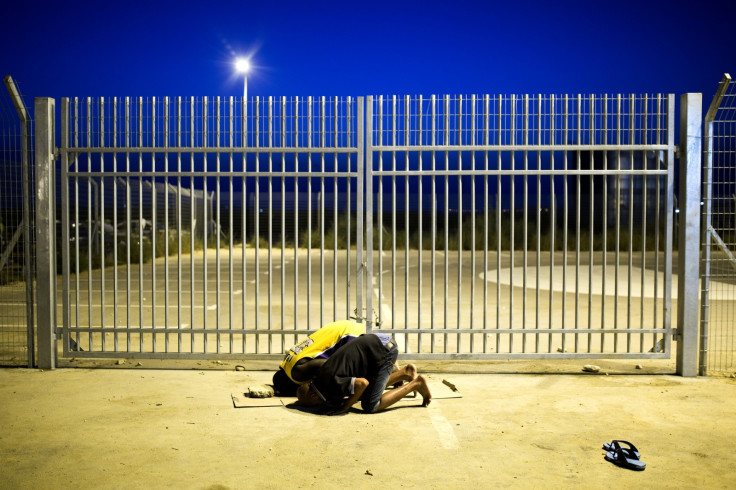
Tax Hike on Employers Hiring Refugees
However damning the rebuke from Israel's highest court, the decision has not deterred the government from pursuing the policy of encouraging refugees to leave the country.
The government's Economic Arrangements Bill, which accompanies the annual budget, includes a tax hike on employers that hire asylum seekers. Taxes imposed on companies hiring legal foreign workers will remain unchanged if the bill is passed.
"Until now we paid a tax, 10% of our salaries, like migrant workers. But now, one of the Knesset members proposed that they need to pay 30% of their salary," Dawit told me. "They are creating laws every year and they are trying to destroy us so that we go by ourselves."
Until now we paid a tax, 10% of our salaries, like migrant workers. But now, one of the Knesset members proposed that they need to pay 30% of their salary
Firstly, the burden makes it less desirable for companies to hire refugees, as they become more expensive than other foreign labour. Moreover, while the increased tax burden will ostensibly be placed on employers, these kinds of taxes usually end up being paid for from the employees' salaries.
Dawit said the proposed increase would make it hard for employees earning a minimum wage to rent an apartment in southern Tel Aviv, the only neighbourhood where they can afford to live as things stand.
"It's getting worse and worse," said Dawit gravely. "I don't want to blame the Israeli public, but the government works hard to [scare] the public. They're calling us infiltrators, that we are cruel, that we are thieves... one of the officials said we are cancer," he added with defeated exasperation.
"I'm not hopeful in Israel," he said softly. "I don't want to live in Israel. I want to live in my country if I could. This is my wish. I've realised that being a refugee and living in exile is not a solution."
© Copyright IBTimes 2025. All rights reserved.






















